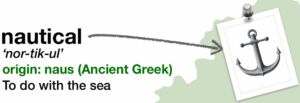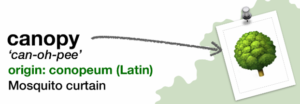A high-quality Latin curriculum will provide pupils a solid foundation for learning further languages in Key Stage 3, in addition to enriching their current knowledge of the English language both in reading and writing. It will equip children with linguistic knowledge, cultural capital and provide purposeful links to other topics in the national curriculum to foster pupils’ curiosity and deepen their understanding of the world.

Pupils will be taught to:

Implementation
Teachers work collaboratively to plan Latin using progression maps and the Maximum Classics schemes of work to ensure teaching is designed to help learners to remember, in the long-term, the content they have been taught and to integrate new knowledge into larger concepts.
Retrieval practice is a fundamental part of our Latin curriculum as it is proven to strengthen memory and make it easier to retrieve the information later (Rosenshine, 2012). Opportunities for retrieval practise occur in two places in the curriculum:

EYFS & KS1
The teaching of a foreign language is not required in EYFS and KS1 as stated in the National Curriculum 2014.
KS2
The teaching of KS2 Latin will occur once weekly. Over the course of a half term, one unit of Latin will be taught.
Latin will be planned to build on prior learning and supplement the teaching of reading and writing. Upon initial implementation of teaching of Latin at Badgerbrook, Years 3-6 will have the same starting point on the programme of study. After the first year of implementation, Year 3 will have the same starting point (Unit 1) and Years 4-6 will continue to progress where the left off in the previous year group. This will continue until a full Year by Year group scheme of work can be applied.
Each unit of work will be planned to build on prior learning and provide a foundation for the next unit. As an example, Unit 1 will begin with the origins of language and units will progress through to writing complex sentences and reading stories in Latin. Additionally, at the start of each lesson, prior learning will be reviewed to consolidate knowledge and commit learning to long-term memory.
Impact
Assessing Progress
Formative Assessment:
Pupils’ progress will be assessed using regular formative assessment in lessons through strategies such as questioning, regular retrieval practice, quizzing, independent learning tasks and assessment of work in books and feedback.
Summative Assessment:
Assessing long-term learning:
The core knowledge and skills taught in each unit will be assessed through a short assessment task. Teachers will use this assessment to provide further feedback or re-teach concepts where necessary to close gaps and ensure pupils have mastered the curriculum content at that point.
The identified non-negotiable knowledge for Latin, for each unit will then be re-tested and re-visited and built upon due to the coherently planned and sequenced progression mapping of the scheme of work year on year.
Tracking Pupil Progress:
Scores from each of the end of unit assessments are used to track pupil progress alongside ongoing teacher assessment. Individual progress is reported to parents through two termly Parents’ Evenings and an end of year report.
Maximum Classics is a scheme and set of digital resources that teaches the Latin language in a way that enhances English literacy, both in its choice of vocabulary and grammar covered. It consists of sixteen Units, each with a particular grammar focus.
Linking language and literacy at KS2 Unit 16 Reading practice, KS2-3 transfer focus One of the main benefits of teaching Latin as a KS2 language is its useful interplay with English grammar and vocabulary. Maximum Classics’ introductory unit explores the history behind English’s links to Latin and Ancient Greek. Vocabulary used on the course is selected to facilitate the exploration of interplay between Latin and English vocabulary and every lesson incorporates games or activities drawing on this. The course also tracks KS2 elements such as word class, tense and auxiliary verbs using the same terminology used in English SPaG teaching (highlighted on the table in yellow).
